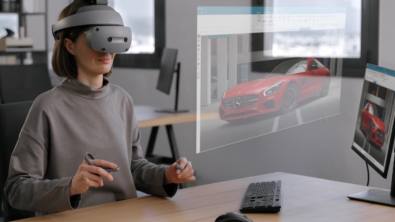Simulation aids sustainable design
Semiconductor and electronics companies have a unique responsibility to guarantee sustainability in their products. As both consumers and corporations integrate AI technologies into their respective activities, the need for specialized semiconductors will inevitably accelerate. Specialized chips that process AI applications are power intensive, so it is imperative that chip manufacturers manage both the energy consumption of the end product as well as energy used during their production.
Guaranteeing that both processes and products are energy efficient is a large part of sustainability. Chip manufacturers need to look to design to reduce their carbon footprint. This starts by using data to their advantage.
The power of insightful data
Before, companies measured sustainability by analyzing past manufacturing and manufacturing performance then using that to create a set of metrics to improve upon. With today’s digital solutions, businesses can use real time data to measure manufacturing processes and actively make improvements. Instantaneous feedback and improvement of manufacturing procedures helps to create a closed loop, driving the organization towards its sustainability goals.
However, the benefits gained from the data all come back to how it is managed. Simulation technology helps put collected data to work. Leveraging technology like the digital twin for products, companies can gain very detailed analysis of power consumption and analyze the chip’s functionality, enabling them to determine whether energy usage could be reduced through design changes by moving more things to software from hardware.
Taking simulation technology a step further, the comprehensive digital twin looks across all the software, semiconductors and electronics, and mechanical systems in the fab to map data and compare it against the predictions of the model. It combines real time feedback and data gathering and allows businesses to put it into a data model that matches the entire system to aid optimization. With a detailed simulation of the fab, companies can understand what its power, water, and HVAC requirements are all going to be and optimize them for sustainability.
When used in conjunction with predictive analysis, the information provided by the comprehensive digital twin makes collaborating more efficient. And from a design perspective, the real time information for components helps factories make more intelligent decisions for the bills of materials (BOMs), allowing them to meet sustainability metrics at the design level. Using the knowledge provided by the digital twin, organizations can choose components that have lower carbon footprints or are more thermally tolerant.
Powering the future
It is crucial that the electronics and semiconductor industries prepare for a future where demand for power-intensive chips accelerates as digitalization in both the home and workplace increases in tandem. Organizations that wish to decrease the power consumption of both their products and processes must improve the way they design chips.
Virtual design has long been a staple of the industries to design just its products; the comprehensive digital twin builds on these pre-established capabilities for the entire fab, allowing businesses to make informed decisions without needing to invest in anything physical. Companies can even use the digital twin to analyze the supply chain and optimize their BOM, ensuring sustainability from the design phase.
To learn more about steps your business could take to guarantee sustainability from design, tune into our special episode on sustainability in the electronics and semiconductor industries.
Siemens Digital Industries Software helps organizations of all sizes digitally transform using software, hardware and services from the Siemens Xcelerator business platform. Siemens’ software and the comprehensive digital twin enable companies to optimize their design, engineering and manufacturing processes to turn today’s ideas into the sustainable products of the future. From chips to entire systems, from product to process, across all industries. Siemens Digital Industries Software – Accelerating transformation


